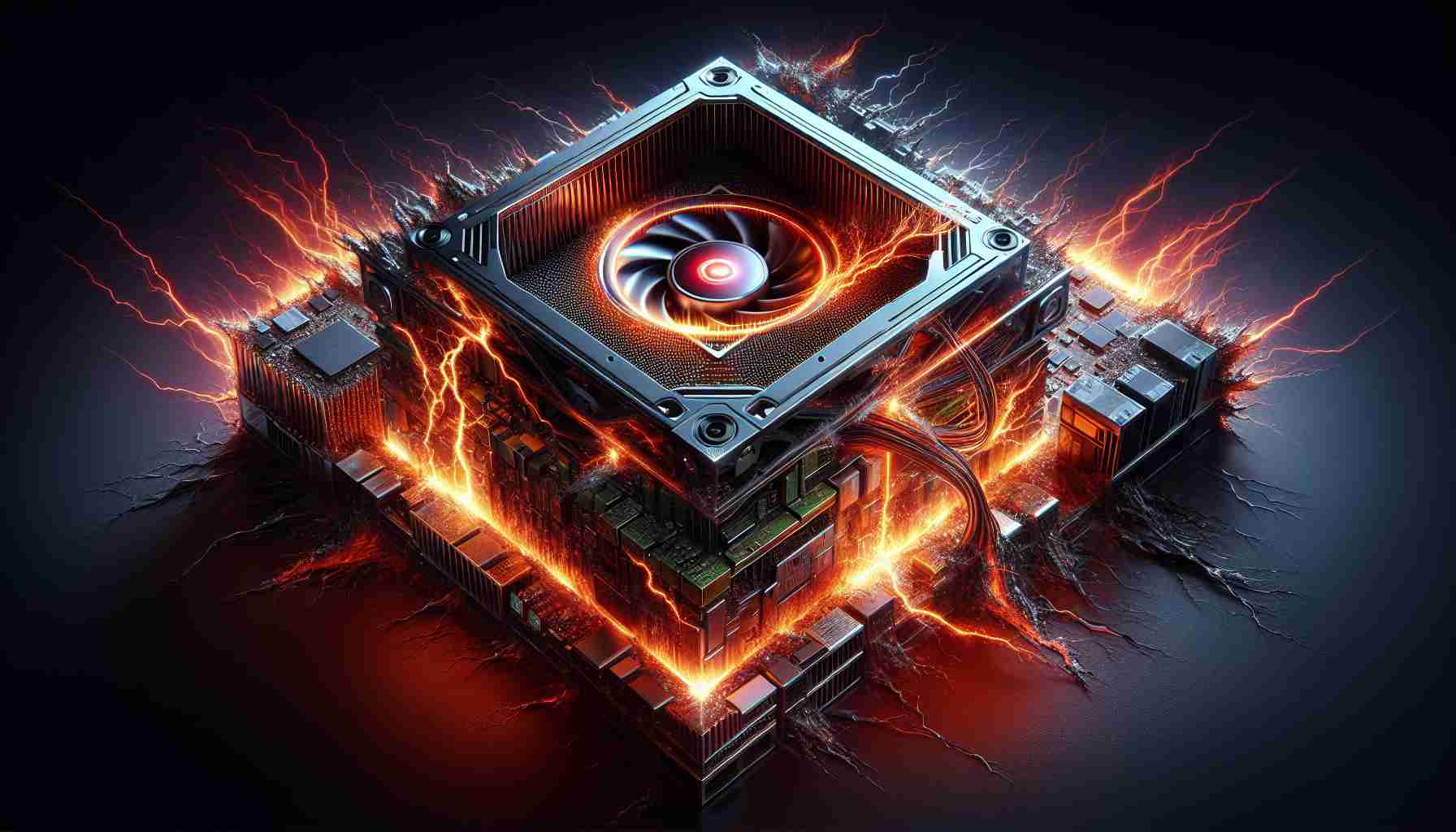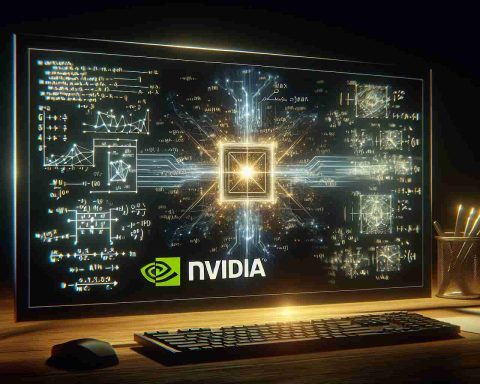Confidence in Future Graphics Cards
In a bold announcement, Nvidia is assuring gamers that the problematic melting concerns linked to the 12VHPWR power connectors will be resolved with their upcoming RTX 50-series graphics cards. This news emerged from the recent RTX AI Day 2025 event held in South Korea.
Nvidia representatives addressed the audience, emphasizing that the overheating issues seen with the RTX 4090’s power connectors have been thoroughly rectified. The company has made significant modifications to the design of these connectors to prevent any recurrence of such problems. Nvidia is optimistic that after two years of development, users can expect a reliable performance from the new series.
The 12VHPWR connector made its debut alongside the RTX 4090 and RTX 4080, celebrated for its compact design and impressive power delivery of up to 600W. However, it soon faced criticism due to overheating and melting incidents. Investigations indicated that improper seating of the connector was a significant contributor to these failures. Despite implementing guidelines to mitigate the issue, concerns remained among users.
To address these problems, Nvidia introduced the new 12V-2×6 connector, featuring slight design modifications to improve connection reliability. With the upcoming RTX 50-series GPUs, which can draw up to 575W, Nvidia asserts that it has taken all necessary precautions. Gamers are advised to utilize power supply units that comply with the latest ATX 3.1 standards for optimal performance.
Future of Gaming Hardware: Insights and Implications
As Nvidia confidently rolls out the revamped RTX 50-series graphics cards, the implications extend far beyond the immediate realm of gaming technology. The assurance of improved power connector design signifies a broader trend in a tech industry increasingly reliant on high-performance computing. As gamers and content creators demand more power for their systems, industries must adapt to these evolving needs, particularly in the design and manufacturing of components.
The global economy could significantly benefit from the innovations spurred by Nvidia’s commitment to reliability and performance. With a shift towards more complex graphics processing, sectors like gaming, virtual reality, and machine learning are projected to experience substantial growth. The latest advancements not only cater to individual consumers but also enhance the capabilities of businesses that depend on high-end graphic solutions, potentially leading to a multi-billion dollar expansion in these sectors.
Moreover, the environmental impact of such technological progress cannot be overlooked. As power efficiency improves, the energy consumption associated with large-scale data centers and gaming operations could witness a noteworthy reduction. This shift is crucial in combating the carbon footprint linked to extensive digital activities. Looking ahead, the trend of creating sustainable technology solutions alongside performance enhancements may become a standard expectation—a vital step in ensuring a responsible approach to game development and tech manufacturing.
Overall, the RTX 50-series serves as a pivotal model of what the future of gaming and computing can achieve, balancing power, performance, and sustainable practices.
Unlocking the Future: What to Expect from Nvidia’s RTX 50-Series Graphics Cards
Confidence in Future Graphics Cards
Nvidia is making waves in the gaming community with its recent announcements regarding the upcoming RTX 50-series graphics cards, addressing previous concerns over power connectors and promising enhanced performance. Following the RTX AI Day 2025 held in South Korea, the company reassured gamers that the significant issues related to the 12VHPWR connectors, known for their overheating and melting problems, have been thoroughly addressed.
Key Innovations and Features
The 12VHPWR connector, initially introduced with the RTX 4090 and 4080, was lauded for its compact design and ability to deliver up to 600W of power. However, reports of overheating incidents soon emerged, primarily attributed to improper seating of the connector. Nvidia’s proactive approach led to the development of the new 12V-2×6 connector. This updated version includes design improvements aimed at enhancing connection reliability and preventing future occurrences of overheating.
In addition to these connector advancements, the upcoming RTX 50-series GPUs are designed to handle up to 575W of power, harnessing the refined connector technology. Nvidia has emphasized the importance of using power supply units that align with the latest ATX 3.1 standards for optimal performance and stability.
Pros and Cons of the Upcoming RTX 50-Series Cards
Pros:
– Enhanced connector reliability: Mitigates past overheating issues.
– Powerful performance: Supports high power draw, suited for gaming enthusiasts.
– ATX 3.1 compliance: Ensures compatibility with modern power supplies.
Cons:
– Potential cost: New technology might come with a higher price point.
– Initial user adaptation: Users may need to adjust to new installation guidelines.
Use Cases and Market Trends
The RTX 50-series graphics cards are expected to cater to a variety of use cases, including:
– High-end gaming: Perfect for gamers seeking top-tier performance in AAA titles.
– Content creation: Beneficial for multimedia professionals requiring powerful rendering capabilities.
– AI and machine learning applications: Equipped to handle demanding computational tasks.
Market analysis indicates a growing trend toward high-performance components as gamers and creators increasingly demand more from their rigs. This shift emphasizes the importance of reliable power delivery solutions.
What to Consider Before Upgrading
Before making a move to upgrade to the new RTX 50-series graphics cards, consider the following aspects:
– Compatibility: Ensure your existing hardware, including the motherboard and PSU, is compatible with the new connectors and power requirements.
– Price vs. Performance: Evaluate whether the investment aligns with your gaming or content creation needs.
– Future-proofing: Consider how long you want your investment to last and if the new features justify the upgrade.
Predictions for the Future
Looking ahead, Nvidia is likely to continue innovating in the graphics card arena, not only enhancing performance but also addressing user concerns regarding hardware reliability. Expectations for the RTX 50-series include:
– Improved thermal management: Further advancements in cooling solutions.
– Expanded software support: Enhancements in drivers and utilities for optimal performance tuning.
– Sustainability initiatives: Increased focus on environmentally friendly manufacturing processes.
In conclusion, Nvidia’s commitment to resolving previous connector issues alongside the introduction of the RTX 50-series graphics cards demonstrates its dedication to delivering powerful and reliable gaming solutions. As technology advances, gamers can look forward to unprecedented performance and stability in their graphics cards.
For further information on Nvidia’s innovations and products, visit nvidia.com.












